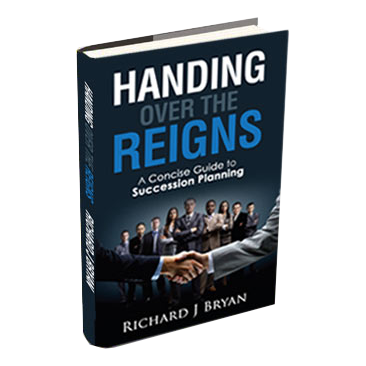In my travels on the succession planning speaker and business turnaround speaker circuits, one of the most popular topics of discussion is leadership talent. My clients wonder: when is the right time to choose one’s successor, and what kind of leaders should they be looking for?
Even family businesses like my own aren’t exempt from these discussions; in the event that your successor is dictated by lineage, you’ll still need to think about their education, training, and development. Here are a few of the most common questions I field as a succession planning speaker, along with big-picture answers to help get the process started.
Q: When should a company start thinking about successors?
A: Yesterday! In a large public corporation, the Board of Directors has a fiduciary responsibility to company shareholders to develop and execute a solid succession plan. If your small or mid-sized business is successful enough to be thinking about the future, you should already be thinking about your successor – particularly if your talent “bench” isn’t very deep. And in a privately held or family business of any size, the owner has a duty to think beyond his or her reign, for the long-term good of family members, employees, customers, and vendors.
Q: Is it a smart strategy to duplicate current leadership?
A: It’s tempting, isn’t it? I’ve had this discussion SO often on the succession planning speaker circuit! Regardless of company type or business size, successful leaders often make the assumption that finding somebody to carry their EXACT torch is best for the business.
But Otis W. Baskin, professor of business at the Graziadio School at Pepperdine University and an associate of the Family Business Consulting Group, Inc., disagrees. “Avoid the temptation to ‘clone’ yourself,” he says. “It is critical to realize that your successor cannot lead the business just like you. Look for the right person to build upon what you have done and take it to new heights, not preserve your memory.”
Instead of looking for a clone, start with some strategic analysis. For example: where do you see the company in five years – or ten? Instead of approaching succession as if you’re hiring to replace you RIGHT NOW, think about it in terms of where the business will be when it’s time for you to move on. If you plan to stay on for another decade, things could look very different.
Q: What core competencies should a good successor have?
A: When this comes up on the succession planning speaker circuit, I always give the same answer: well, that depends on the circumstance. Obviously, there are core competencies that should apply to anyone you’ll be considering for a key leadership role – like integrity, strategic excellence, high emotional intelligence, good communication skills and the like.
But the true “secret sauce” of a great leader may have less to do with their scores in any of these categories than with how well they align with the unique needs of your enterprise, and where it might be in five or ten years. It’s like that old saying, “dress for the job you want.” Think ahead to the future of your business and hire accordingly at all levels.
Q: How do you build credibility for family successors?
A: As a succession planning speaker who’s had the experience of being thrust suddenly into a CEO role, I field a lot of questions about this – and there’s no easy answer. You want to give your children every opportunity to succeed, but it’s also critical that you instill a strong work ethic and discourage the sense of entitlement that often comes with the territory.
In my family, this meant holding a variety of age and experience appropriate roles both inside and outside of our business, starting at the very bottom of the corporate ladder. Beginning at age 14, I held various menial jobs within our family-owned car and truck dealerships – I unloaded trucks, manned the 24-hour gas station, drove for the parts department and worked as an advisor in the service department.
Later, I worked in an award-winning service department at a dealership in Colorado, and as a commission-only sales executive in Virginia. All of these jobs helped to shape the leader I would eventually become; I learned how to interact with customers, communicate with colleagues and gain the critical industry knowledge I would need to take the reins.
In hindsight, the specific form of this diverse experience took helped immensely with my own credibility within the company. I was quite visible in my roles at the bottom of the totem pole, and employees at every level had the opportunity to witness me gamely “paying my dues” without a lot of real personal or professional consequence attached to my actions.
Then, when it was time for me to take on new responsibilities – and potentially experience obvious growing pains – I did so outside the company, where I could learn from my mistakes without everyone looking on. I highly recommend this approach and will surely put it to the test with my own children when the time comes; which, come to think of it, is VERY soon.
Need a deeper dive on this complex subject? Schedule a succession planning speaker keynote presentation by calling 877-316-3110. For tips on how to communicate your succession plan with key stakeholders, simply sign up for our mailing list.
Related Topics:
5 Tips to Fight Busy-ness in your Business
How Disagreement Can Help Your Team Thrive
5 Leadership Resolutions for 2019 + How to Make them a Reality


